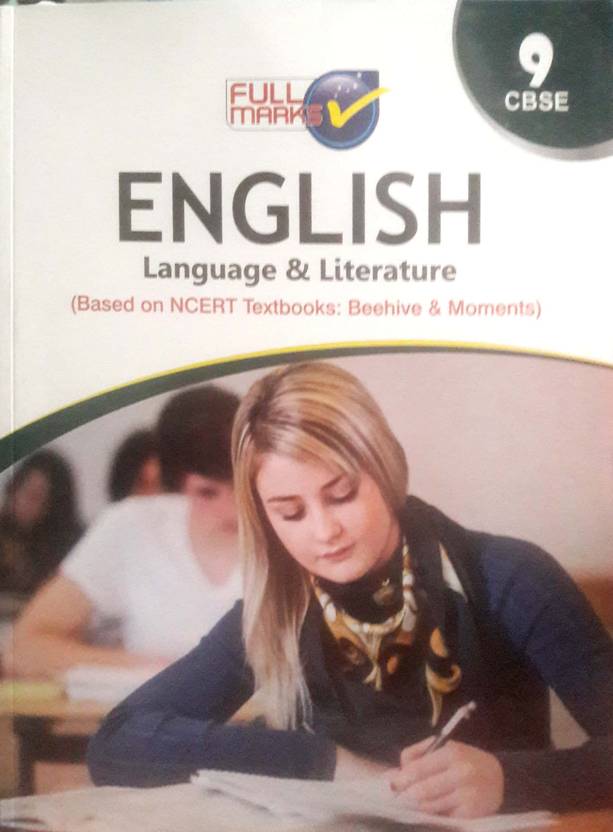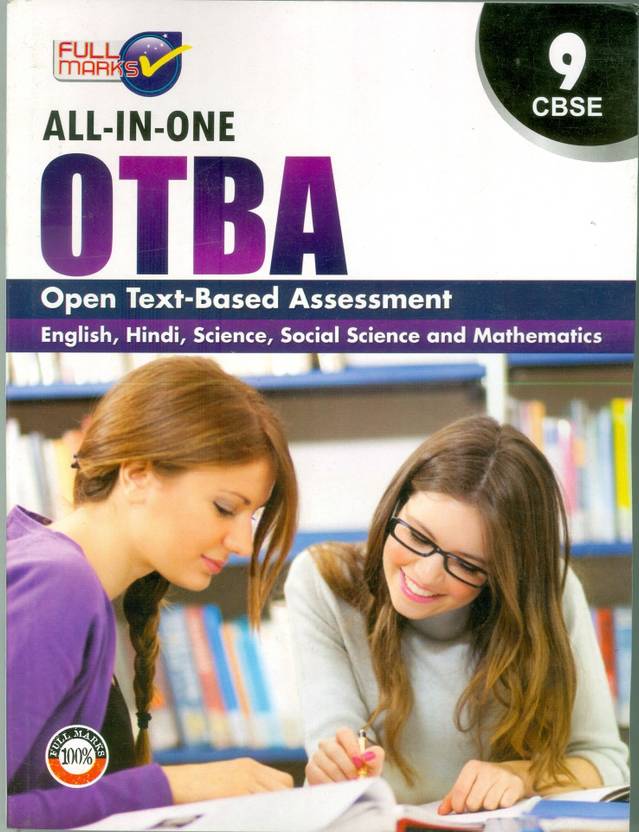Cbse Class 9 English Full Mark Guide
Posted By admin On 03.02.20- Cbse Guide For Class 9
- Cbse Class 10 English Literature
- Cbse Class 9 English Full Marks Guide Book Pdf
New revised syllabus 2018-2019 class 9 English Language and Literature will be followed by all CBSE schools from this session (April 2018 onwards) in class 9. Those schools offering English Communicative till last session, will now offer English Language and literature from session 2018-19. English language and literature Syllabus 2018-19 Class 9th syllabus of English Language and literature has some modifications this year. The novels Guliver’s Travel and Three men in a boat have been discontinued this year.
Now the 8 mark long question will be asked from the text book. There will be no question from novels this year onwards. New Poem Added to the syllabus Last year, 9 poems were part of syllabus but this year CBSE has added one new poem to class 9 English Language and literature syllabus. Now students have to study 10 poems. The new poem added is A Slumber did My Spirit Seal. Thus total number of chapters this year are 11 prose from Beehive, 10 poems from NCERT text book Beehive and 10 chapters from NCERT text book Moments.
ENGLISH LANGUAGE AND LITERATURE (Code No. 184) SYLLABUS CLASS – IX (2018-19) SECTION – WISE WEIGHTAGE. Total Weightage 80 Marks. Section A Reading Skills 20 Marks.
Section B Writing Skills with Grammar 30 Marks. Section C Literature Textbook and Supplementary Reading Text 30 Marks The annual examination will be of 80 marks, with a duration of three hours. SECTION A: READING There will be 20 Marks to be covered in 50 Periods. This section will have two reading passages. Q.1: A Factual passage 300-350 words with eight Very Short Answer type Questions. 8 marks. Q. 2: A Discursive passage of 350-400 words with four Short Answer type Questions to test inference, evaluation and analysis with four Very Short Answer Questions to test vocabulary.
12 marks SECTION B: WRITING AND GRAMMAR There will be 30 Marks to be covered in 60 Periods. Q.


3: Writing an Article/ Descriptive Paragraph( person/ place/ event/diary entry) in about 100-150 words based on visual or verbal cue/s. The questions will be thematically based on the prescribed books. 8 marks. Q. 4: Writing a short story based on a given outline or cue/s in about 150 – 200 words. 10 marks The Grammar syllabus will include the following areas in class IX: 1. Use of passive voice 4.

Subject – verb concord 5. Reporting Commands and requests, Statements, Questions 6. Clauses: (i) Noun clauses (ii) Adverb clauses of condition and time (iii) Relative clauses 7. Determiners 8. Prepositions The above items may be tested through test types(grammar in context) as given below:. Q. 5: Gap filling with one or two words to test Prepositions, Articles, Conjunctions and Tenses.
6: Editing or omission 4 marks. Q.
Cbse Guide For Class 9
7: Sentences reordering or sentence transformation in context. 4 marks SECTION C: LITERATURE TEXTBOOKS There will be 30 Marks to be covered in 60 Periods.
Q. One out of two extracts from prose/poetry/play for reference to the context. Four Very Short Answer Questions: two questions of one mark each on global comprehension and two questions of one mark each on interpretation. (1×4=4 marks). Q.9. Five Short Answer Type Questions from BEEHIVE AND MOMENTS (3 questions from BEEHIVE and 2 questions from MOMENTS) to test local and global comprehension of theme and ideas (30-40 words each) 2×5 = 10 marks. Q.10. One out two long answer type questions from the book BEEHIVE to assess Creativity, imagination and extrapolation beyond the text and across the texts. (100-150 words) 8 marks.
Q.11. One out of two Long Answer Questions from the book MOMENTS on theme or plot involving interpretation, extrapolation beyond the text and inference or character sketch in about 100-150 words. Prescribed Books for class 9 English The books are Published by NCERT, New Delh. BEEHIVE – Textbook for class IX. MOMENTS – Supplementary Reader for Class IX NOTE: Teachers are advised to:. Encourage classroom interaction among peers, students and teachers through activities such as role play, group work etc.
Reduce teacher-talk time and keep it to the minimum,. Take up questions for discussion to encourage pupils to participate and to marshal their ideas and express and defend their views. Besides measuring attainment, texts serve the dual purpose of diagnosing mistakes and areas of non-learning. To make evaluation a true index of learners’ attainment, each language skill is to be assessed through a judicious mixture of different types of questions. Reading Section: Reading for comprehension, critical evaluation, inference and analysis are skills to be tested.
Writing Section: All types of short and extended writing tasks will be dealt with. Grammar: Grammar items mentioned in the syllabus will be taught and assessed.
CBSE The Central Board of Secondary Education (CBSE) is one of the most prestigious and preferred educational boards in India. It aims to provide a holistic and healthy education to all its learners so that students can get adequate space to develop mentally and physically. CBSE is known for its comprehensive syllabus and well structured exam pattern which helps students to get a detailed idea about the entire curriculum. There are around 20,102 schools under the board which follows the NCERT curriculum. Abbreviation CBSE Type Governmental Board of Education Founded 3rd November 1962 Headquarters New Delhi, India Chairperson Mrs. Anita Karwal Phone No. 011 2250 9256 Official languages Hindi, English Parent organisation Ministry of Human Resource Development Official Website www.cbse.nic.in Tag Line “Committed To Equity And Excellence In Education” CBSE Class 10 Exam The Central Board of Secondary Education will conduct the final examination for the 10th standard from March 2019 till 1st week of April 2019.
Cbse Class 10 English Literature
Students can download their Admit Card from the official website. The CBSE Admit Card for Class 10 will contain all the necessary information regarding the exam like roll number, examination center, etc. The board will announce the results for class 10 on its official website in the month of May – June 2019 (tentative). In 2018, the board announced the class 10 results on 29th May 2018. Students who are going to appear in the class 10th CBSE 2019 examination are advised to work hard and master the basics and fundamentals of 10th standard to score well in the exam.
CBSE Class 12 Exam The Class 12 examination of CBSE board is very competitive. The 12th standard examination will begin in March 2019 and will end in April 2019. The board will release the admit card the exam and students can download it by visiting the official website. The CBSE 2019 Admit Card will contain important details like roll number, exam center, etc.
The class 12 results will be declared in the month of May – June (tentative). In 2018 the 12th standard results were declared on 26th May 2018. Candidates who will be appearing in the 12th standard exam must work hard with dedication to succeed in the exam. They must be committed to 2 years of hard work to master the basics for the Class 12 board exam. CBSE Exam Pattern Students studying in CBSE board are assessed in two areas: Co-scholastic and Scholastic. The academic year of the Scholastic areas is divided into two terms which are Term 1 and Term 2 and two types of tests which are Formative Assessment and Summative Assessment are conducted to evaluate the academic subjects.
Formative Assessment: In the primary classes, the formative assessment tests are in the form of oral tests, dictation, homework, class test, projects & assignments, storytelling, elocution, memory test, quiz, etc. Summative Assessment: Here students are tested internally.
Cbse Class 9 English Full Marks Guide Book Pdf
The Summative Assessment (SA) tests are in the form of pen and paper. The tests are conducted by the school. The Summative Assessment is conducted at the end of each term two times each year. Check to know the detailed marking scheme and exam pattern for Class 10 and Class 12. Grading System The exam structure for CBSE Class 6 to 8 consists of Term 1 and Term 2.
The detailed exam structure for the two terms is described in the tables below. CBSE (Class 6 – 8) Term 1 Term 2 Subjects Language 1, 2, & 3, Maths, Science, Social Science, other subjects Language 1, 2, & 3, Maths, Science, Social Science, other subjects Period Assessment (PA) 10 marks 20 marks Notebook submissions 5 marks 5 marks (at term end) Sub – enrichment 5 marks (at term end) 5 marks (at term end) Half yearly exam (Term 1) / Yearly exam (Term 2) 80 marks 80 marks Total marks 100 marks 100 marks Students are awarded grades and not marks. The CBSE results are declared in 2 categories: Eligible for Improvement of Performance (EIOP) or Eligible for Qualifying Certificate (QUAL). Grading System for Primary Classes.